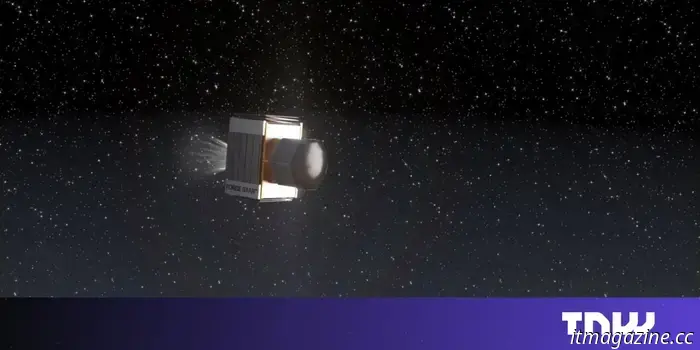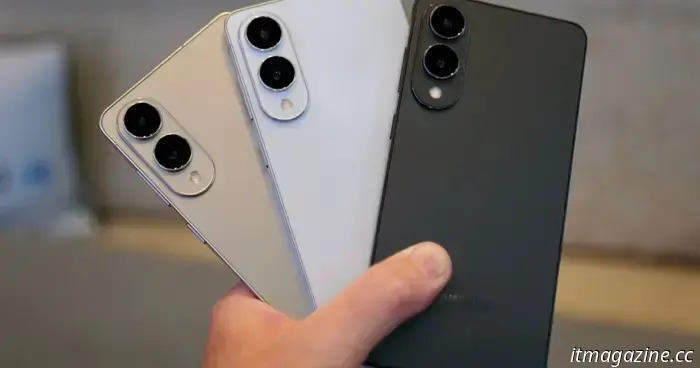
NATO supports a Welsh startup that is developing a space factory for producing 'supermaterials'.
Welsh startup Space Forge has successfully secured $30 million to further develop its first commercial in-orbit manufacturing satellite, ForgeStar-2. The NATO Innovation Fund was the lead investor in this funding round, which marks the largest Series A financing in the history of UK space technology.
The company’s initial demonstrator, ForgeStar-1, is slated for launch from the US aboard a SpaceX rocket this year. This satellite, which is roughly the size of an oven, will take advantage of the unique conditions in space to create "supermaterials" that cannot be produced on Earth.
Joshua Western, CEO and co-founder of Space Forge, likened the technology to a sourdough starter—a small yet powerful foundation for expanding something much larger. "Our satellites utilize the zero-gravity, ultra-cold, vacuum environment of space to generate tiny crystals of a higher quality than those created otherwise," Western stated.
Once these crystal "seeds" return to Earth, they can be used to grow larger crystals, which would serve as the foundation for ultra-efficient computer chips that could power a range of devices, from data centers to telecommunications networks. Space Forge claims that these semiconductors could reduce EV charging times by half. Additionally, the technology could be applied to create new metal alloys or pharmaceuticals.
This reflects the long-term goal, though it's important to note that Space Forge has yet to produce materials in space, and ForgeStar-1 will not be returning to Earth; it will be deliberately incinerated in the atmosphere.
However, onboard sensors will allow the team to assess whether the crystal-forming process was successful. The primary objective of the mission is to validate the key technologies of the startup in preparation for launching ForgeStar-2.
ForgeStar-2 is designed to be reusable and will feature a heat shield called Griffon to protect its valuable payload from the extreme heat and pressure experienced during re-entry. This will enable regular missions to space and allow the transport of new seeds back to laboratories on Earth.
Space Forge anticipates that its crystal seeds could command a value of up to £45 million ($60 million) per kilogram, easily covering launch expenses. The company also argues that the energy savings from its semiconductors in technologies like electric vehicles will compensate for the carbon emissions associated with launching the satellite.
The newly acquired funding will expedite the development of ForgeStar-2. With NATO’s involvement in the funding round, it suggests that the company’s technology may also have relevant applications in defense and security. This could strengthen European security through the production of advanced materials for defense systems and lessen dependency on foreign suppliers for essential components.
Chris O’Connor, a partner at NATO Innovation Fund, remarked that Space Forge would enhance Europe’s access to space, promote supply chain independence, and improve long-term resilience. "We look forward to collaborating with the Space Forge team to harness their technological advancements to secure the future for NATO nations," he expressed.
Other articles
 The 5 key insights from the unveiling of Google's Android 16
Android 16 is set to be a significant update, and here’s what you should be aware of from its announcement.
The 5 key insights from the unveiling of Google's Android 16
Android 16 is set to be a significant update, and here’s what you should be aware of from its announcement.
 This is the top preorder offer for the Samsung Galaxy S25 Edge.
The Samsung Galaxy S25 Edge is the slimmest smartphone in Samsung's Galaxy S lineup to date, and there are some promotions available if you preorder it at this time.
This is the top preorder offer for the Samsung Galaxy S25 Edge.
The Samsung Galaxy S25 Edge is the slimmest smartphone in Samsung's Galaxy S lineup to date, and there are some promotions available if you preorder it at this time.
 Spotify DJ can now accept song requests just like a live DJ, but without the judgment.
Spotify DJ can now play any music you desire simply by using your voice.
Spotify DJ can now accept song requests just like a live DJ, but without the judgment.
Spotify DJ can now play any music you desire simply by using your voice.
 Apple participates in China's national subsidy initiative as the prices of the iPhone 16 series decrease.
The iPhone 16 Pro has garnered significant attention as it is now part of China’s national consumer subsidy program for the first time. With the assistance of both official and government subsidies, the 128GB version in China is currently priced at RMB 5,499 ($770), which is a RMB 2,500 ($350) decrease from its initial price of RMB 7,999 ($1120).
Apple participates in China's national subsidy initiative as the prices of the iPhone 16 series decrease.
The iPhone 16 Pro has garnered significant attention as it is now part of China’s national consumer subsidy program for the first time. With the assistance of both official and government subsidies, the 128GB version in China is currently priced at RMB 5,499 ($770), which is a RMB 2,500 ($350) decrease from its initial price of RMB 7,999 ($1120).
 Bravely Default HD Remaster demonstrates the capabilities of the Switch 2’s mouse controls for the party.
We tested the new minigames in Bravely Default: Flying Fairy HD Remaster for Switch 2, which effectively utilize the system's mouse controls.
Bravely Default HD Remaster demonstrates the capabilities of the Switch 2’s mouse controls for the party.
We tested the new minigames in Bravely Default: Flying Fairy HD Remaster for Switch 2, which effectively utilize the system's mouse controls.
 The new Android OS will have more decorations and a little Gemini.
Android OS has entered a period of its development when, instead of increasing functionality, new versions and updates are a set of new colorful and shiny backgrounds, fonts, icons and other pleasant trinkets. So, the main innovation that will appear in Android 16 and Wear OS 6 is the new Material 3 Expressive design. However, the Gemini AI will also be present there.
The new Android OS will have more decorations and a little Gemini.
Android OS has entered a period of its development when, instead of increasing functionality, new versions and updates are a set of new colorful and shiny backgrounds, fonts, icons and other pleasant trinkets. So, the main innovation that will appear in Android 16 and Wear OS 6 is the new Material 3 Expressive design. However, the Gemini AI will also be present there.
NATO supports a Welsh startup that is developing a space factory for producing 'supermaterials'.
Welsh startup Space Forge has secured $30 million to progress its inaugural commercial in-orbit manufacturing satellite, ForgeStar-2.
